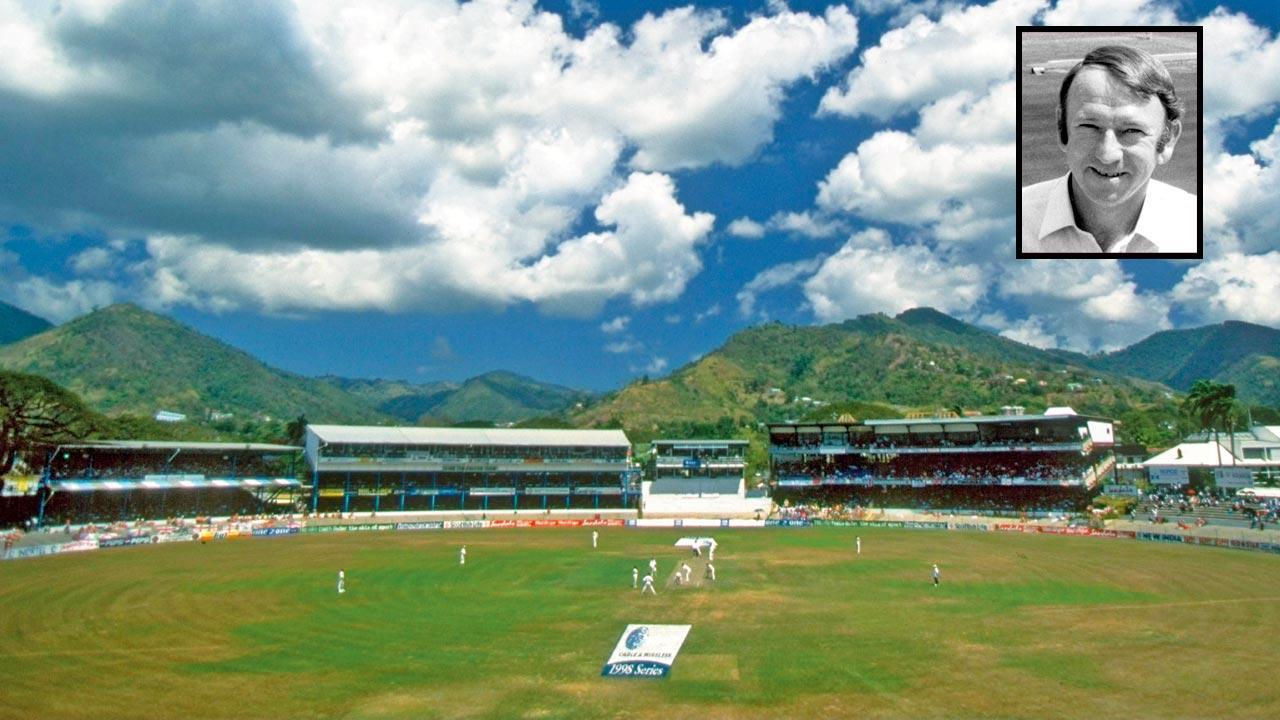50-year-old Test of skill
Updated On: 30 March, 2023 07:01 AM IST | Mumbai | Clayton Murzello
Australia’s win over West Indies at Trinidad in the March of 1973 was golden in more ways than one with Doug Walters heading the list of heroes with a century in a session

The Queen’s Park Oval in Trindad, where Australia and West Indies competed in the third Test of the five-match Sir Frank Worrell Trophy series; (inset) Aussie hero Doug Walters. Pics/Getty Images
 The stakeholders of Australian cricket, despite the recent Test series loss to India, have some reason to smile (if not be elated) with the current scenario. After two highly forgettable losses in the Nagpur and New Delhi Tests, their team bounced back splendidly in Indore to make their scoreline 1-2. After the creditable draw in Ahmedabad, they clinched the ODI series 2-1.
The stakeholders of Australian cricket, despite the recent Test series loss to India, have some reason to smile (if not be elated) with the current scenario. After two highly forgettable losses in the Nagpur and New Delhi Tests, their team bounced back splendidly in Indore to make their scoreline 1-2. After the creditable draw in Ahmedabad, they clinched the ODI series 2-1.
The people in the inner ring of Australian cricket 50 seasons ago were an upbeat bunch too. For, on March 28, 1973, Ian Chappell’s Australians beat a Rohan Kanhai-led West Indies outfit in a tight Test match at the Queen’s Park Oval in Port-of-Spain, Trinidad.



